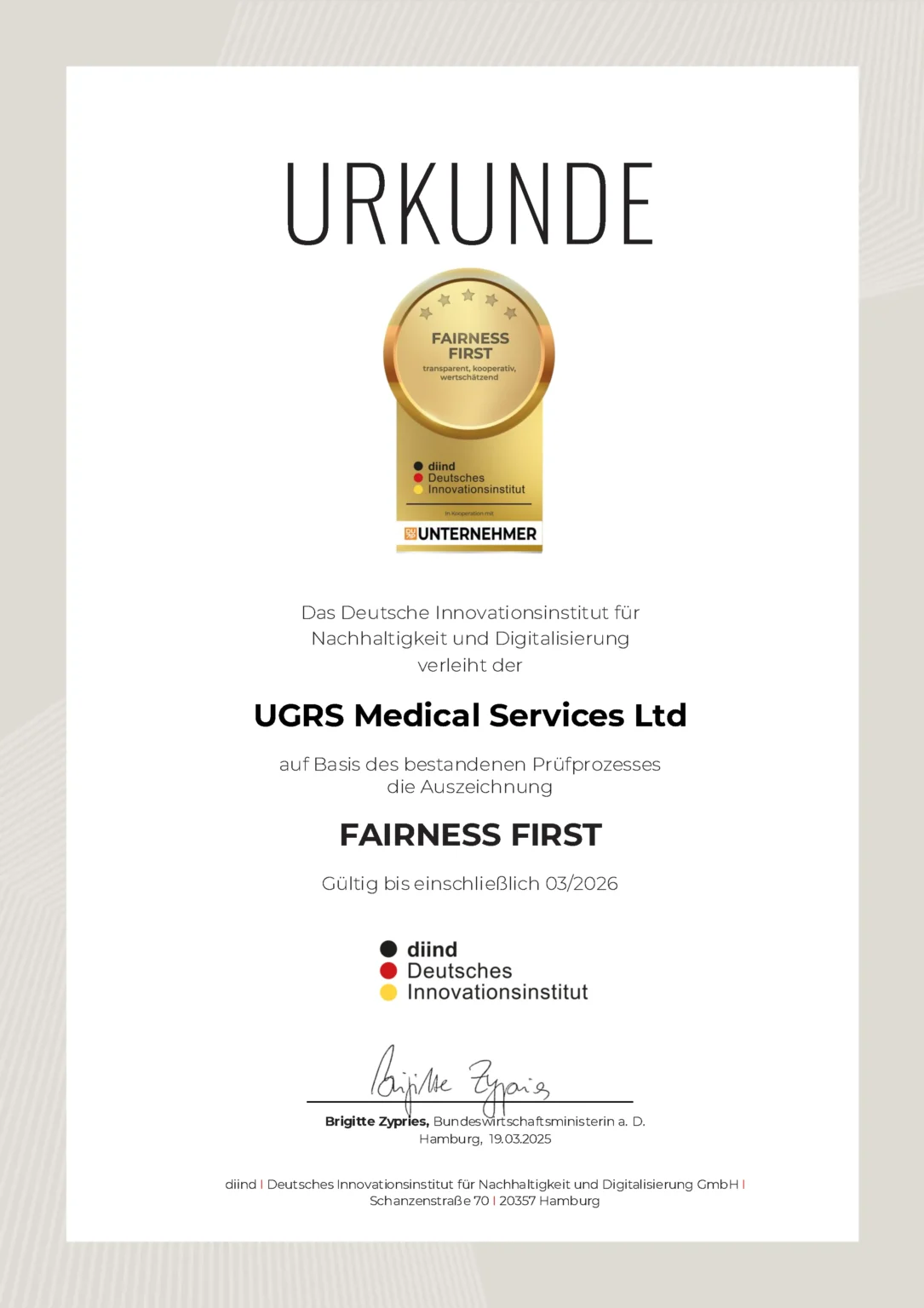Home » UGRS.Blog – Latest Topics & Insights on Urology and Penis Enlargement » How does cystitis manifest itself in men? Symptoms, causes & treatment
How does cystitis manifest itself in men? Symptoms, causes & treatment
Cystitis is often considered a women’s disease – but men can also be affected. Although cystitis occurs less frequently in men, its course is often more complicated. In this blog post, we’ll show you how to recognize cystitis, what causes it and what treatment really helps.
What are the typical symptoms of cystitis in men?
Inflammation of the bladder can manifest itself through various symptoms:
- Burning or pain when urinating
- Frequent urge to urinate, even at night
- Small amount of urine despite urge to urinate
- Cloudy, unpleasant smelling urine
- Pain in the lower abdomen
- In severe cases: Fever or chills
Caution: Fever and flank pain may indicate pyelonephritis – immediate medical clarification is necessary.
What are the causes of cystitis in men?
In contrast to women, the male urethra is significantly longer – infections are therefore usually an indication of additional risk factors:
- Prostate enlargement (residual urine favors bacterial growth)
- Catheter treatment or bladder dysfunction
- Weakened immune defense
- Diabetes mellitus
- Sexually transmitted pathogens (e.g. chlamydia)
Cause
Description
Residual urine due to BPH
Increased risk of germ multiplication
Catheterization
Spread of germs into the bladder
Diabetes
Increased susceptibility to infections
Sexual intercourse (STIs)
Transmission of bacteria or viruses
How is the diagnosis made?
A urologist will carry out various examinations to find the exact cause:
- 1. anamnesis: precise questioning of symptoms and possible triggers
- 2. urine examination: test strips, urine culture to determine germs
- 3. blood test: if systemic infection is suspected
- 4. ultrasound: checking the bladder, prostate and urinary tract
- 5. residual urine measurement or cystoscopy for chronic complaints
Which therapy really helps?
Depending on the cause and type of germ, a targeted treatment is initiated:
1. antibiotics
- Selected according to urine culture
- Usually taken for 5-7 days, longer in complicated cases
2. painkillers & antispasmodics
- Relieve burning and cramp-like discomfort
3. drink a lot
- Supports the flushing out of pathogens
4. treatment of the cause
- Z.E.g. drug treatment of an enlarged prostate
How can you prevent cystitis?
Simple measures can significantly reduce the risk:
- Drink enough: at least 1.5-2 liters of water daily
- Empty your bladder regularly: do not hold back too long
- Pay attention to intimate hygiene: use mild products
- Use condoms: Protection against sexually transmitted infections
- Urinating after sex: flushes potential germs out of the urethra
When should you see a urologist?
Cystitis in men is always a case for a specialist, as it is almost always considered “complicated”:
- Complaints last longer than 2 days
- Blood in the urine or fever
- Recurrent inflammation
- Pain in the flank or back
Early clarification prevents complications and consequential damage – especially to the prostate or kidneys.
Conclusion: Do not take it lightly
Although bladder infections in men are less common, they should be treated all the more seriously. With early diagnosis, targeted treatment and a few simple precautions, you can alleviate symptoms and avoid future infections.
The medical information provided on this website is for general information purposes only and does not replace a personal consultation with our doctors. As a tertiary medical center, we are also available for second opinions.
© Copyright Jörg Hagen, Doctor
About the author
Jörg Hagen, doctor
The author Jörg Hagen has been the medical director of UGRS International Germany since 1995 and has over 30 years of experience in penis enlargement and complex urological issues. He is regarded as one of the leading experts in the interests of patients in Europe. His international activities, excellent diagnostics and legal successes in patient rights make his assessments particularly well-founded. Patients appreciate his scientifically based, discreet and trustworthy care. His articles are based on many years of practice and well-founded information at the highest level.
This content is for general information purposes only and does not constitute medical advice, diagnosis or treatment recommendations. It is in no way a substitute for a professional examination or treatment by a licensed physician. If you have any health complaints or uncertainties, please always consult a medical professional – especially if you have any questions about intimate surgery or sexual health.










